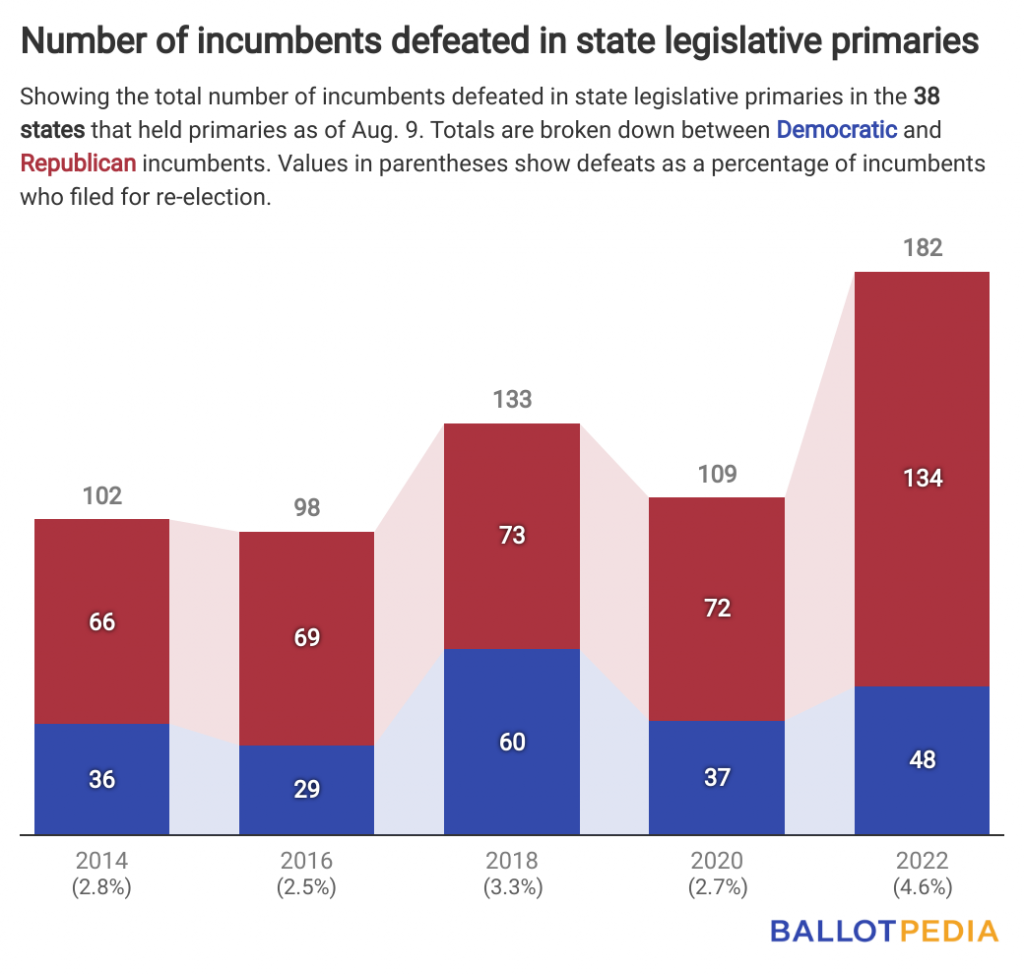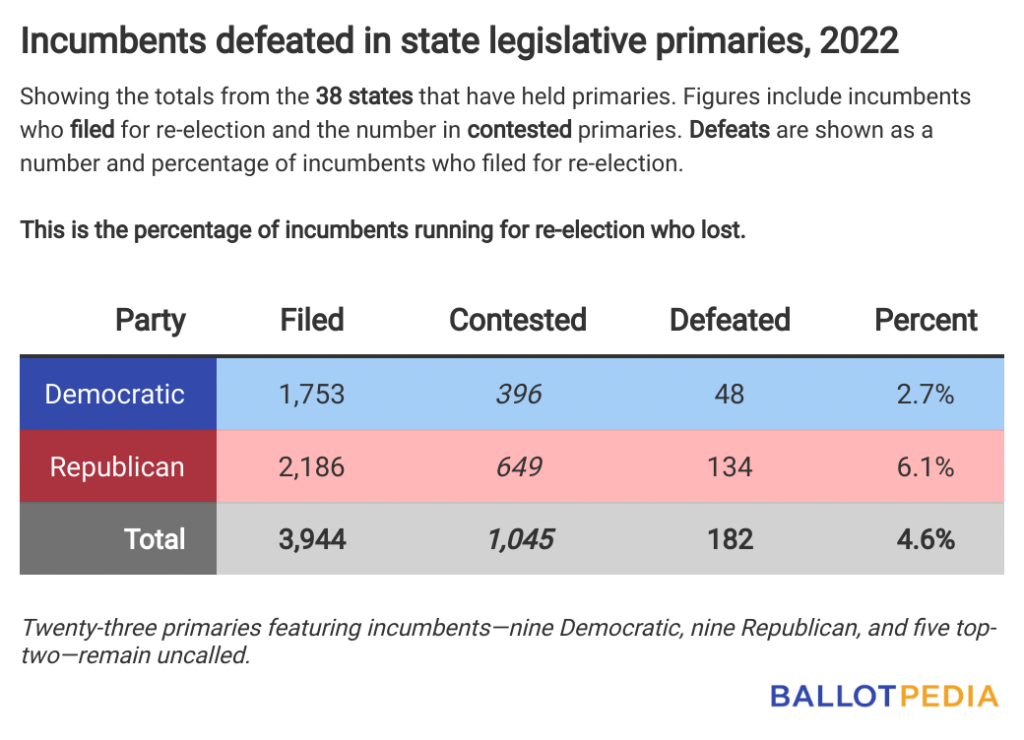So far this year, 182 state legislative incumbents—48 Democrats and 134 Republicans—have lost to primary challengers.
Across the 38 states that have held primaries, 4.6% of incumbents running for re-election have lost, an elevated level of incumbent losses compared to previous cycles.

These totals include data from Tennessee, which held primaries on Aug. 4, as well as Connecticut, Minnesota, Vermont, and Wisconsin, which held primaries on Aug. 9. So far:
- Connecticut: one Democrat lost;
- Minnesota: three Democrats lost; and,
- Tennessee: two Republicans lost.
No incumbents have lost in Vermont or Wisconsin, though races featuring incumbents remain uncalled.
This year, Republican incumbents have lost at a higher rate than Democrats. Of the 2,186 Republican incumbents who filed for re-election, 134 (6.1%) have lost to primary challengers. For Democrats, 48 of the 1,753 who filed for re-election (2.7%) have lost.

Forty-one of these 182 incumbent defeats (23%) were guaranteed due to redistricting. When states redraw legislative lines, incumbents can oftentimes end up in a new district with other incumbents leading to incumbent v. incumbent primaries or general elections. Since, in these races, there are more incumbents running than nominations or seats available, at least one incumbent must lose.
Of the 38 states that have held primaries so far, 10 have Democratic trifectas, 19 have Republican trifectas, and nine have divided governments. Across these 38 states, there are 5,106 seats up for election, 81% of the nationwide total.
The figures for 2022 will likely increase. There are currently 23 uncalled primaries featuring incumbents: nine Democratic, nine Republican, and five top-two.


